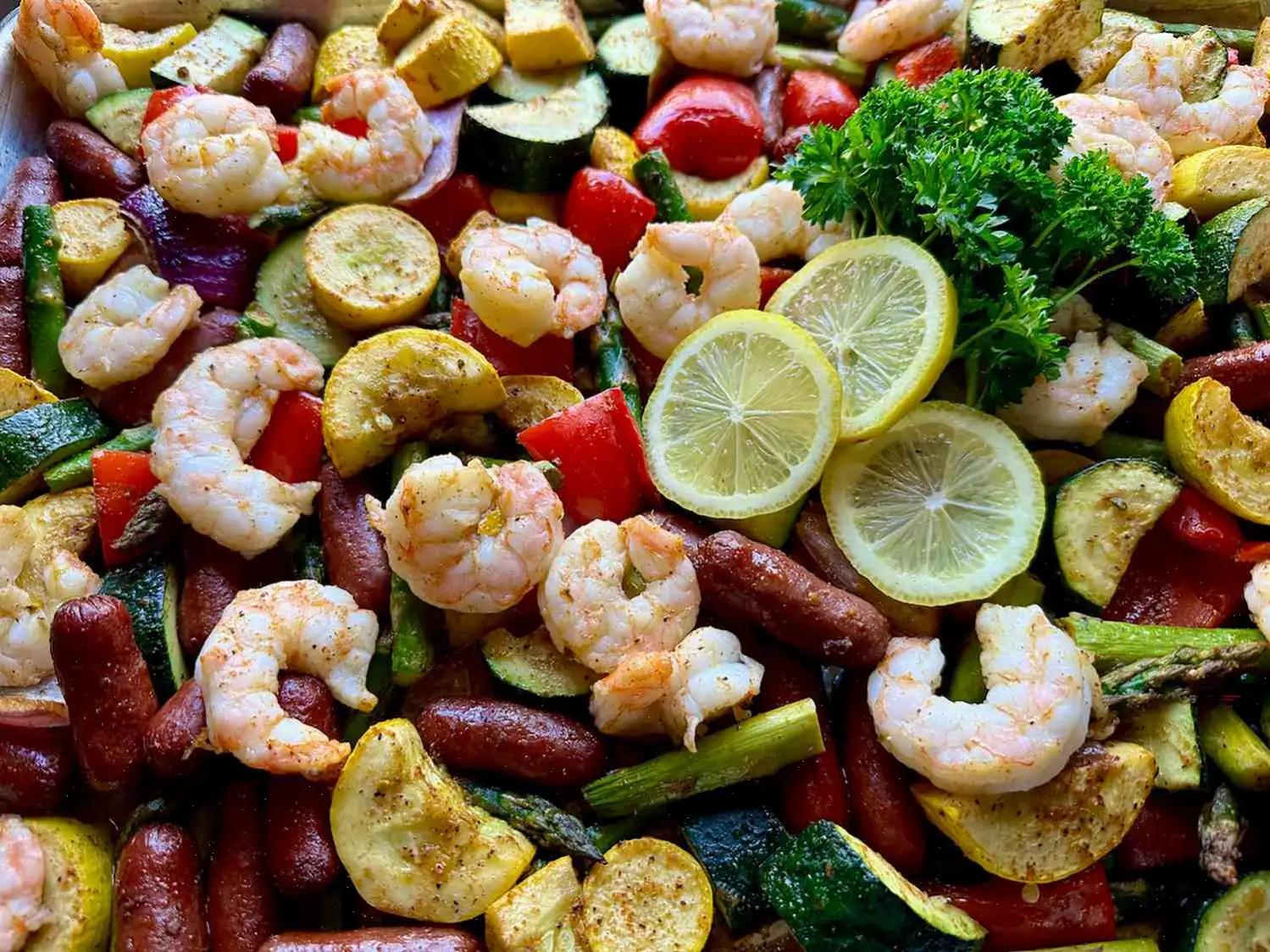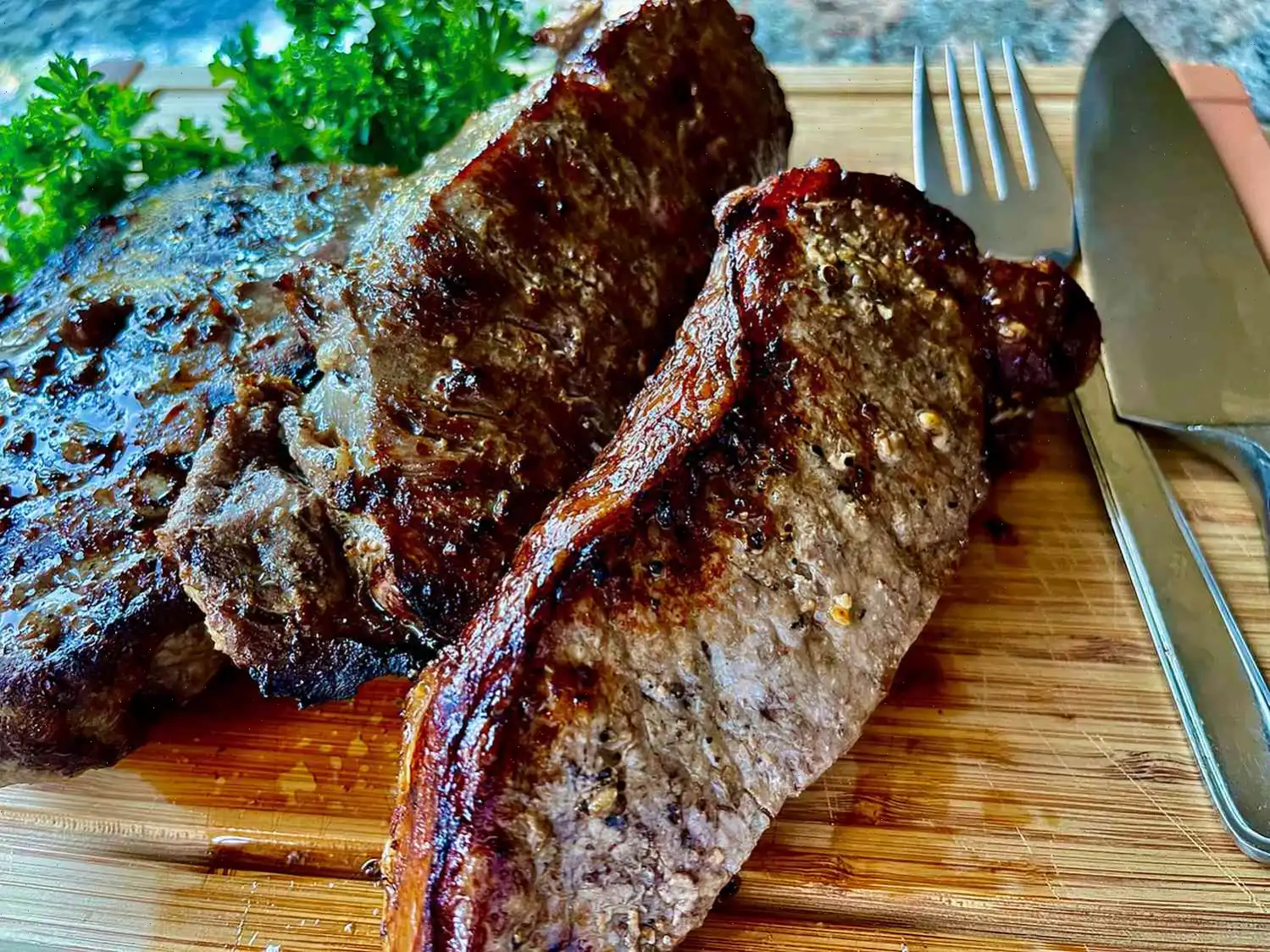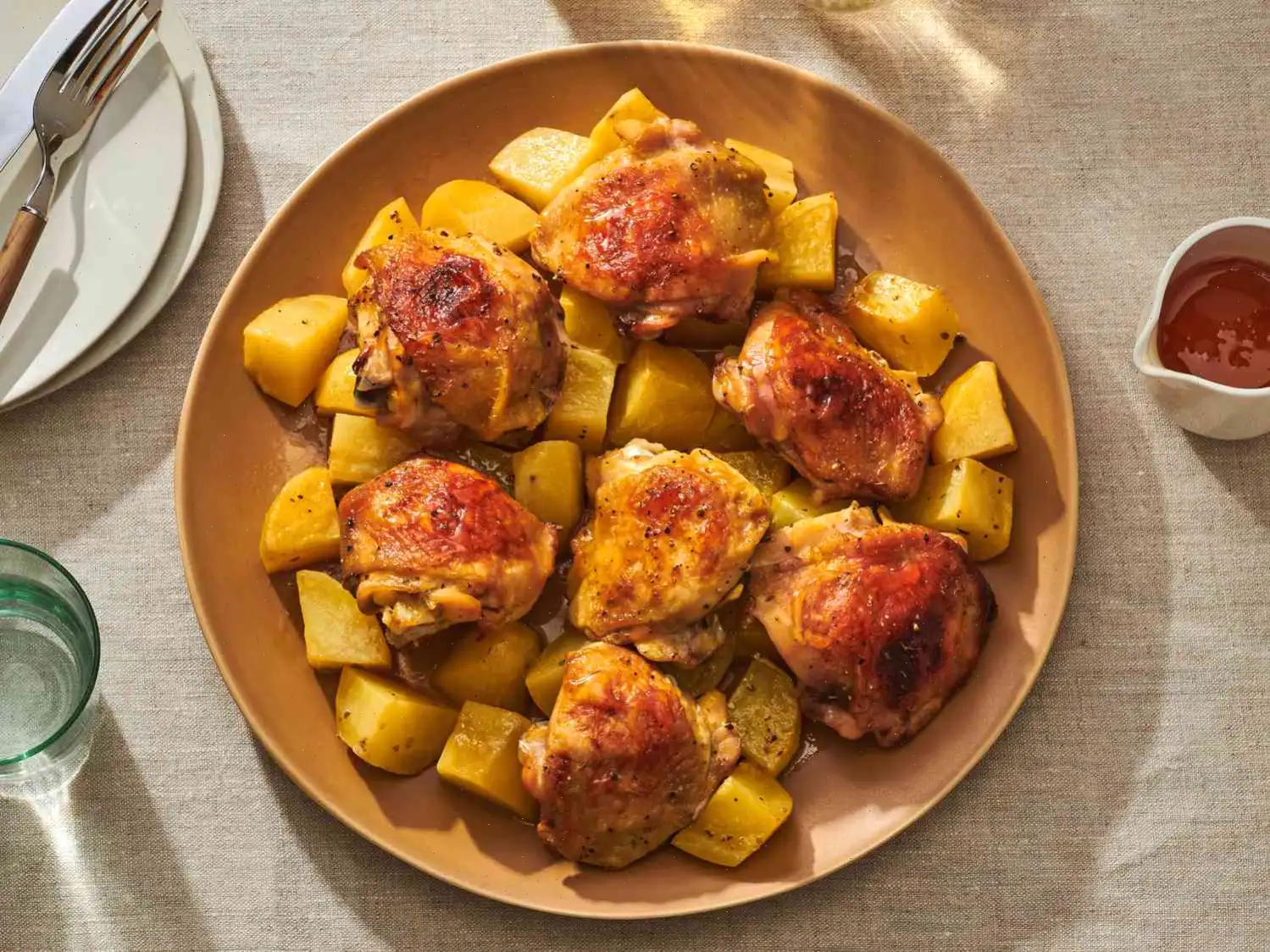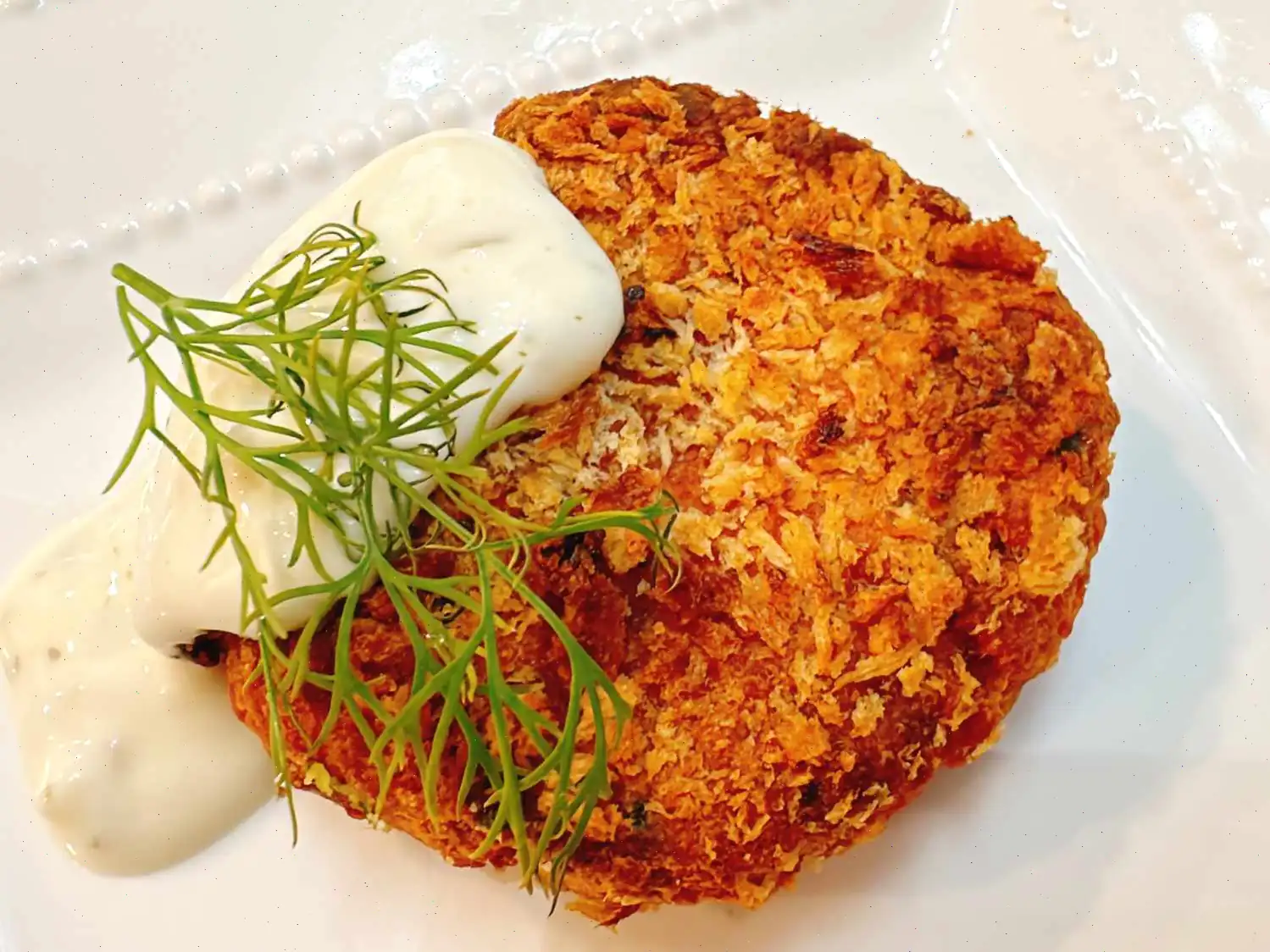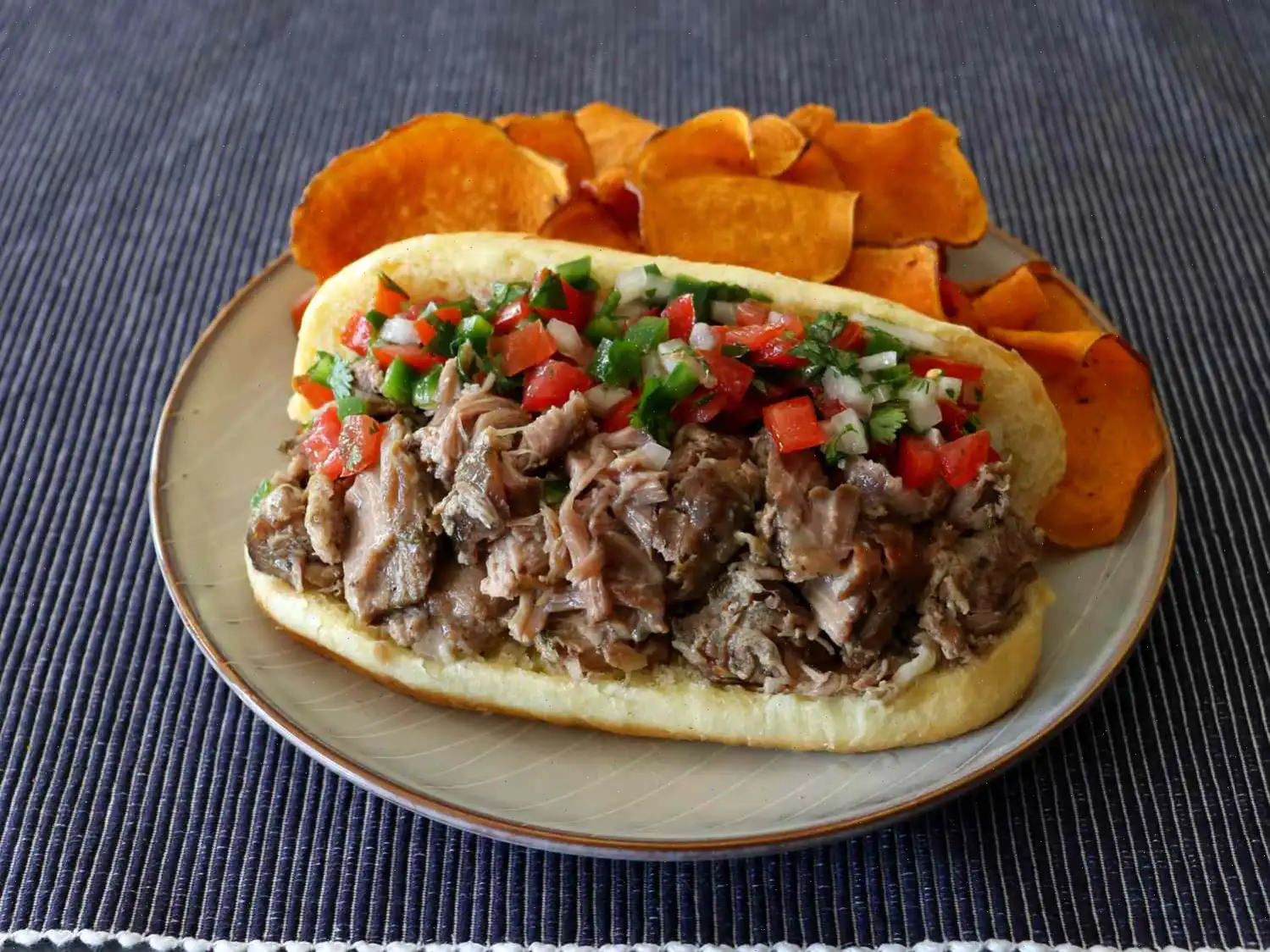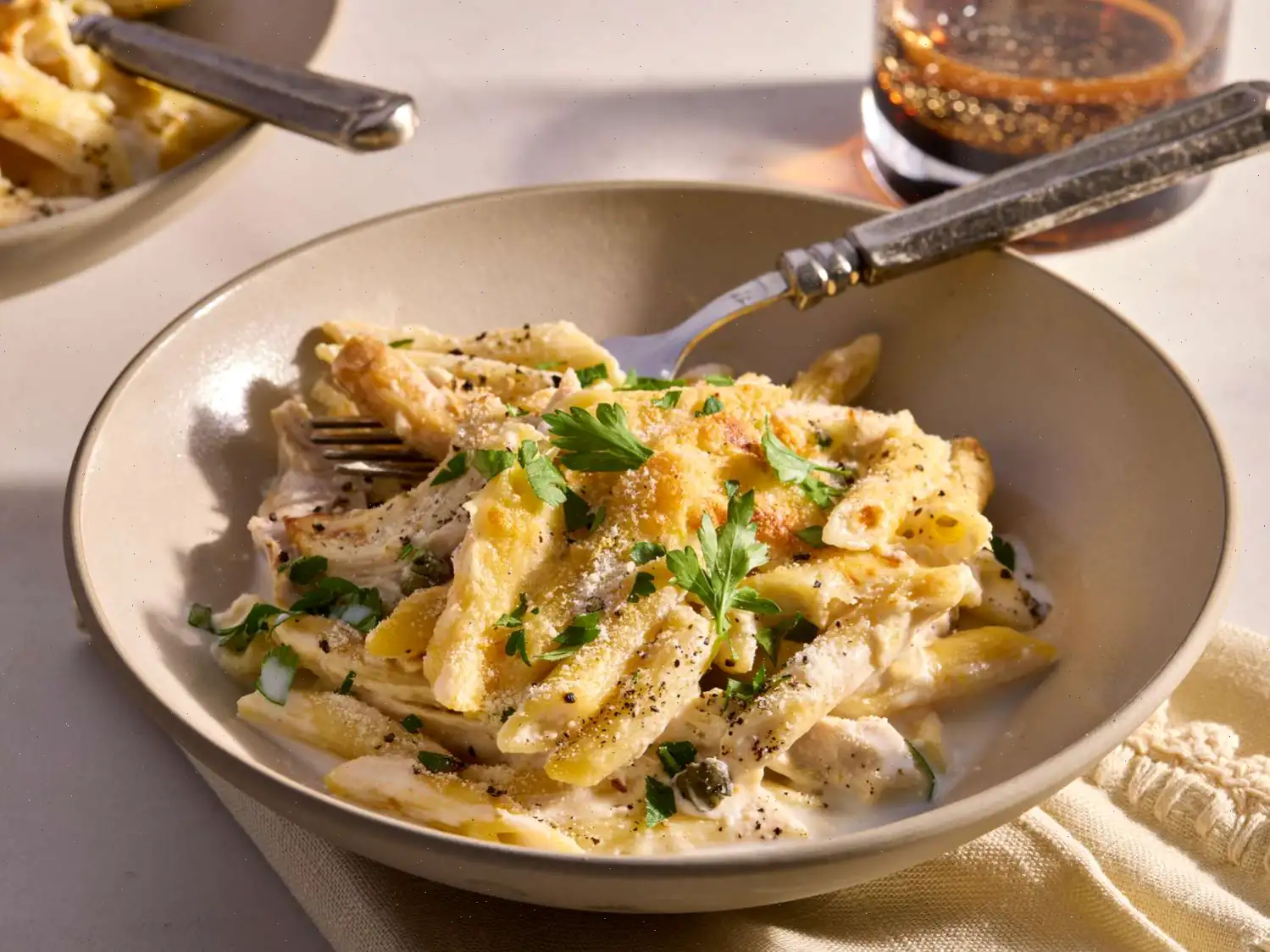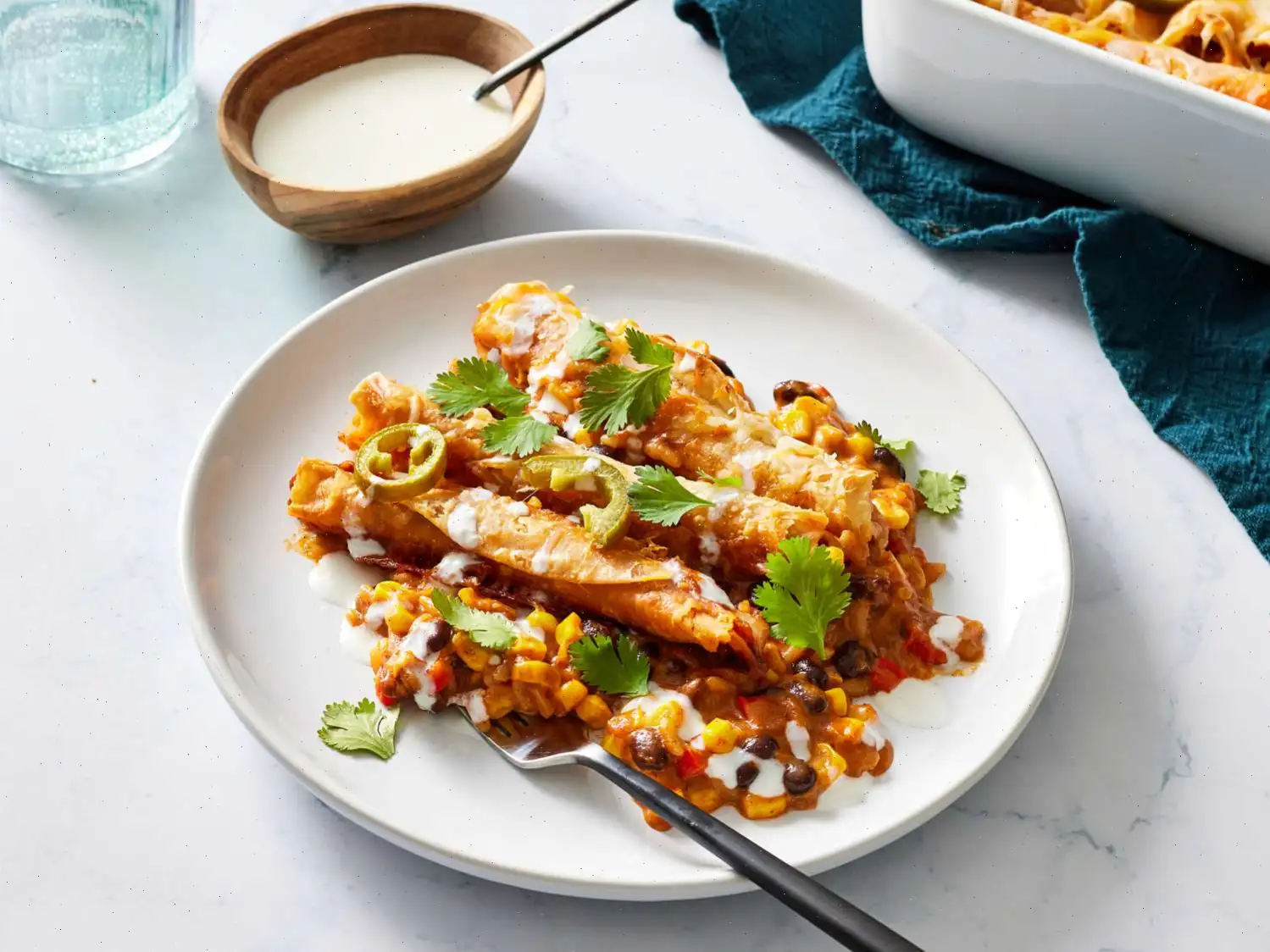
Receta de Cena en Bandeja con Camarones Cajún y Salchichas
Esta cena de camarones y salchichas al estilo Cajún en una bandeja es una comida rápida y fácil que está llena de sabor. La combinación de especias Cajún picantes, camarones jugosos y salchichas sabrosas crea un plato delicioso, perfecto para las noches ocupadas. Simplemente mezcla todo en una bandeja, mételo al horno y en poco tiempo tendrás la cena lista. Sirve este plato con arroz o pan crujiente para una comida completa que a toda la familia le encantará.
Ingredientes:
- 450 gramos de esprragos frescos, cortados en trozos de 3 partes
- 450 gramos de calabacn amarillo, cortado en trozos de 2,5 cm
- 450 gramos de calabacn verde, cortado en trozos de 2,5 cm
- 1/2 cebolla roja mediana, picada en cubos de 2,5 cm
- 1 pimiento rojo, cortado en trozos de 2,5 cm
- 3 cucharadas de aceite de oliva virgen extra, dividido
- 2 cucharadas y 1 cucharadita de condimento Cajn bajo en sodio, separado
- 450 gramos de salchichas mini de cctel
- 450 gramos de camarones pelados y desvenados, sin cscara
- Opcional: hojas de perejil fresco y rodajas de limn para decorar
Instrucciones:
- Precalienta el horno a 200C y cubre una bandeja de hornear con papel pergamino o papel de aluminio.
- En un tazn grande, mezcla los esprragos, el calabacn amarillo, el calabacn verde, la cebolla roja y el pimiento rojo. Agrega 2 cucharadas de aceite de oliva y espolvorea 2 cucharadas de condimento Cajn. Mezcla bien hasta que todas las verduras estn bien cubiertas.
- Incorpora las salchichas mini a la mezcla de verduras y distribyelas de manera uniforme en la bandeja preparada.
- Hornea en el horno durante 10 minutos para que las verduras y las salchichas empiecen a cocinarse.
- Mientras tanto, seca los camarones con toallas de papel. En otro tazn, mezcla los camarones con la cucharada restante de aceite de oliva y la cucharadita de condimento Cajn. Revuelve para asegurar que todos los camarones estn bien sazonados.
- Pasados los 10 minutos, saca la bandeja del horno. Remueve la mezcla de verduras y salchichas, y coloca los camarones sazonados encima de las verduras.
- Vuelve a meter la bandeja en el horno y sigue horneando hasta que las verduras estn tiernas y los camarones se tornen opacos, aproximadamente otros 10 minutos. Recuerda que los camarones seguirn cocinndose un poco fuera del horno debido al calor residual.
- Transfiere todo a un plato de servir y, si lo deseas, decora con perejil picado y rodajas de limn para un toque fresco.
Notas del Chef:
Este platillo tiene un toque picante gracias al condimento Cajn. Puedes ajustar el nivel de picante a tu gusto. No se incluye sal ni pimienta por defecto, as que puedes sazonar al gusto. Adems, si prefieres una opcin menos picante, puedes reducir la cantidad de condimento Cajn.
Informacin Nutricional (por porcin):
- Caloras: 450
- Grasas: 31g (40% DV)
- Grasas Saturadas: 10g (51% DV)
- Colesterol: 203mg (68% DV)
- Sodio: 2633mg (114% DV)
- Carbohidratos: 15g (5% DV)
- Fibra Diettica: 4g (15% DV)
- Azcares: 6g
- Protenas: 30g (60% DV)
- Vitamina C: 53mg (59% DV)
- Calcio: 138mg (11% DV)
- Hierro: 3mg (15% DV)
- Potasio: 902mg (19% DV)
*Los valores diarios porcentuales estn basados en una dieta de 2000 caloras. El contenido nutricional puede variar dependiendo de las marcas de los ingredientes. Consulta con un profesional de la salud si sigues una dieta restringida.
La cena de camarones y salchichas al horno al estilo Cajn tiene sus races en las ricas tradiciones culinarias de Luisiana, EE. UU. La cocina cajn evolucion a partir de los colonos acadianos de habla francesa que fueron deportados de Canad en el siglo XVIII y se establecieron en los pantanos del sur de Luisiana. Estos colonos adaptaron ingredientes locales como mariscos, salchichas y verduras frescas en platos robustos y sabrosos que se podan preparar rpidamente y alimentar a grandes familias.
La adaptacin al estilo de la bandeja de hornear de camarones y salchichas es una versin moderna del tradicional "shrimp boil" cajn, diseada para ofrecer comodidad sin perder las especias audaces que caracterizan la regin.
Caractersticas Regionales
En Luisiana, especialmente en la regin de Acadiana, los platos cajunes destacan la "santa trinidad" de vegetales: cebollas, pimientos morrones y apio, junto con protenas como camarones, cangrejos de ro y salchichas ahumadas. El condimento es una marca registrada, con pimentn, cayena, ajo y pimienta negra creando un calor distintivo.
A diferencia de los tradicionales "shrimp boils", que se preparan con agua hirviendo y condimentos, la versin al horno tuesta los ingredientes, concentrando los sabores y produciendo una textura ligeramente caramelizada en las verduras y protenas.
Caractersticas que la Distinguen de Platos Similares
Si bien recuerda al "shrimp boil" o al gumbo, esta cena al horno se distingue por su simplicidad y eficiencia. Los tradicionales "shrimp boils" requieren una gran olla de agua hirviendo e incluyen a menudo maz y papas, mientras que la versin al horno agiliza el proceso de coccin y utiliza una variedad de verduras frescas en lugar de acompaamientos con almidn.
En comparacin con el gumbo, no incluye roux ni una salsa espesa, lo que lo hace ms ligero, pero an mantiene el sabor cajn caracterstico.
Ocasiones Tpicas de Servir
Este plato se sirve comnmente en cenas familiares informales, comidas entre semana o pequeos encuentros donde se busca facilidad de preparacin y limpieza. Combina perfectamente con una ensalada verde simple, pan francs crujiente o arroz al vapor. En los restaurantes, a menudo se presenta en el men como un plato principal inspirado en el sur, atractivo para aquellos que disfrutan de sabores audaces y picantes sin necesidad de una presentacin elaborada.
Datos Curiosos
La cena de camarones y salchichas al horno al estilo Cajn refleja la tendencia ms amplia de la cocina "de una sola bandeja", que se ha vuelto popular en las cocinas modernas por su conveniencia. El plato ejemplifica la adaptabilidad de la cocina cajn, originalmente diseada para estirar ingredientes limitados en comidas sabrosas y satisfactorias. Las cenas al horno como esta son una reinterpretacin moderna, mostrando cmo las recetas tradicionales pueden evolucionar manteniendo su esencia cultural.
La combinacin de camarones y salchichas ahumadas refleja las clsicas combinaciones de sabores que se encuentran en los festivales de Luisiana y en los "seafood boils". A pesar de su simplicidad, el plato captura la picantez caracterstica y la complejidad aromtica que define la autntica cocina cajn.

